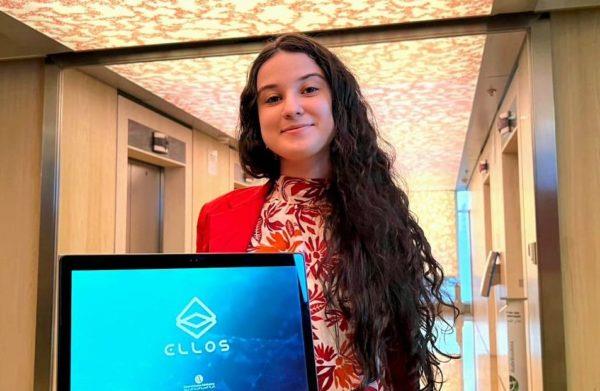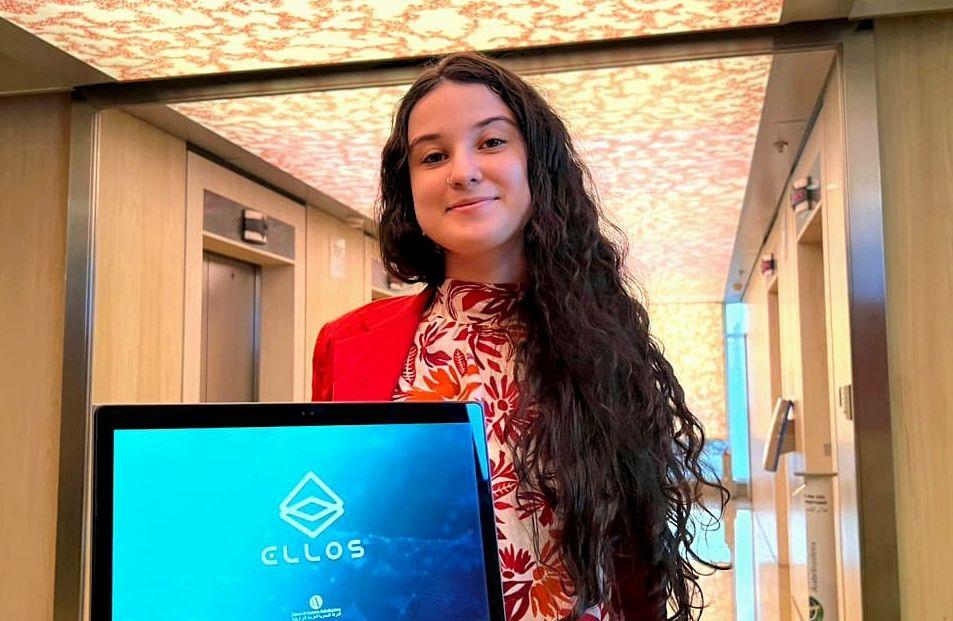(MENAFN- brazil-arab news agency (anba))

são paulo – on the one hand, blockchain and its ample application possibilities. on the other hand, brazil's trade relationship with the arab countries and its growth potential. uniting these two universes and verifying how the first is benefiting and can make the latter advance even further was the object of research of 23-year-old university of são paulo (usp) graduate student helena leite rodrigues fernandes from são paulo (pictured above).
earlier this august, fernandes presented her final assignment for her mba in digital business at the luiz de queiroz school of agriculture (esalq) of usp, titled“blockchain technology: opportunities for applicability in trade relations between brazil and the arab countries.” the work received full marks, and the professors who accompanied the research presentation indicated it would remain in the usp library as a reference.
the story of the são paulo native with technology began at the arab brazilian chamber of commerce (abcc), where she worked in the customer relationship management (crm) system for four years. despite having a degree in marketing, based on her experience with software, the young woman wanted to delve into technology and became interested in blockchain.“i like to study, and i told myself: let's see what's trending in the technology market besides crm. i discovered several very cool things,” she said.
fernandes started studying blockchain initially in a self-taught way, relying mainly on content in english, as she found little information on the subject in portuguese. she also started to attend blockchain events and workshops. when she went looking for an mba in 2020, however, she did not find courses specifically focused on the subject but believed usp's digital business was a good way to unite blockchain and business, which she intended to study.
interest in technology led her not only to a graduate degree in the area but also to a change in her job sector. working at the abcc for seven years, where she started as an apprentice, fernandes moved between the commercial and marketing departments, and as of early 2023, moved to the information technology (it) department, where she is product owner and gives support for a blockchain project, among other activities.
the abcc developed the ellos platform, which includes easy trade – a blockchain tool to digitally operate customs clearance for trade between brazil and the arab countries, eliminating paperwork. the solution is already used in exports from brazil to jordan and could soon be used by other arab countries. easy trade on the ellos platform was the case studied by fernandes in her mba.
“the blockchain is very customizable; it is so flexible we can apply it in certain sectors according to specific demands. it provides many benefits; it is secure, transparent, traceable, and scalable. these characteristics accompany the blockchain regardless of application. we can use it in the financial sector, supply chain, and several applications; it remains safe, transparent, traceable, and scalable,” she said.
based on experience with the ellos platform, the researcher pointed out the benefit of using blockchain technology in brazil's trade with the arab countries, in addition to existing challenges and new opportunities for application. the study began with an overview of blockchain technology, brazil-arab countries' trade relationship, and its potential.“brazil and the arab countries are significant partners; they have huge potential, and blockchain also has,” said fernandes.
the researcher interviewed professionals from different abcc departments about the applicability and benefits of the ellos platform and its blockchain. international relations professionals from the institution perceived the benefit of sustainability of the process by using digital documents instead of paperwork, no longer sending it physically, which would generate emissions of pollutants in transport.
market intelligence pointed out the technology's traceability and security, bringing more accuracy and transparency to export data, including creating public policies to strengthen the relationship between countries. the commercial area sees cost savings with the exemption of paperwork, even offering a more competitive product to the international market. the shortening of deadlines, from 15 days to four hours, was also pointed out as a benefit, which could impact business margins.
a new applicability suggested for blockchain in the brazil-arab countries trade relationship and pointed out in the research was the traceability, mainly for halal products. halal goods are produced according to islamic religious requirements and must follow given standards and procedures. the blockchain could track this entire process and make the information available to the consumer.
one of the challenges pointed out was the infrastructure, since for the blockchain to work, the internet is needed, and not all countries have the necessary network.“but if a project is implemented, we could help these countries to have this basic infrastructure,” said fernandes. other challenges are finding professionals qualified in blockchain – which are scarce – and the cost, which is very much linked to the value of the workforce.“there are not many qualified professionals, and this market is trending, so the cost is high,” stated fernandes. other blockchain expenses, such as cloud storage and server hosting, are not usually expensive.
with the mba and the experience gained, fernandes positions herself as a professional who proposes and conducts business projects using blockchain and manages to plan the architecture for them to a stage before a technical scope. she explained she is not a developer and, therefore, not a professional who creates a blockchain platform from a technological point of view.
the final paper,“blockchain technology: opportunities for applicability in trade relations between brazil and the arab countries” was supervised by professor bruno henrique sanches and will be made available at the usp library soon for public consultation. it could also serve as a base for a scientific paper for a conference or magazine.
translated by elúsio brasileiro
press release
the post researcher studies blockchain in brazil-arab trade appeared first on agência de notícias brasil-árabe .

.jpg)



















Comments
No comment